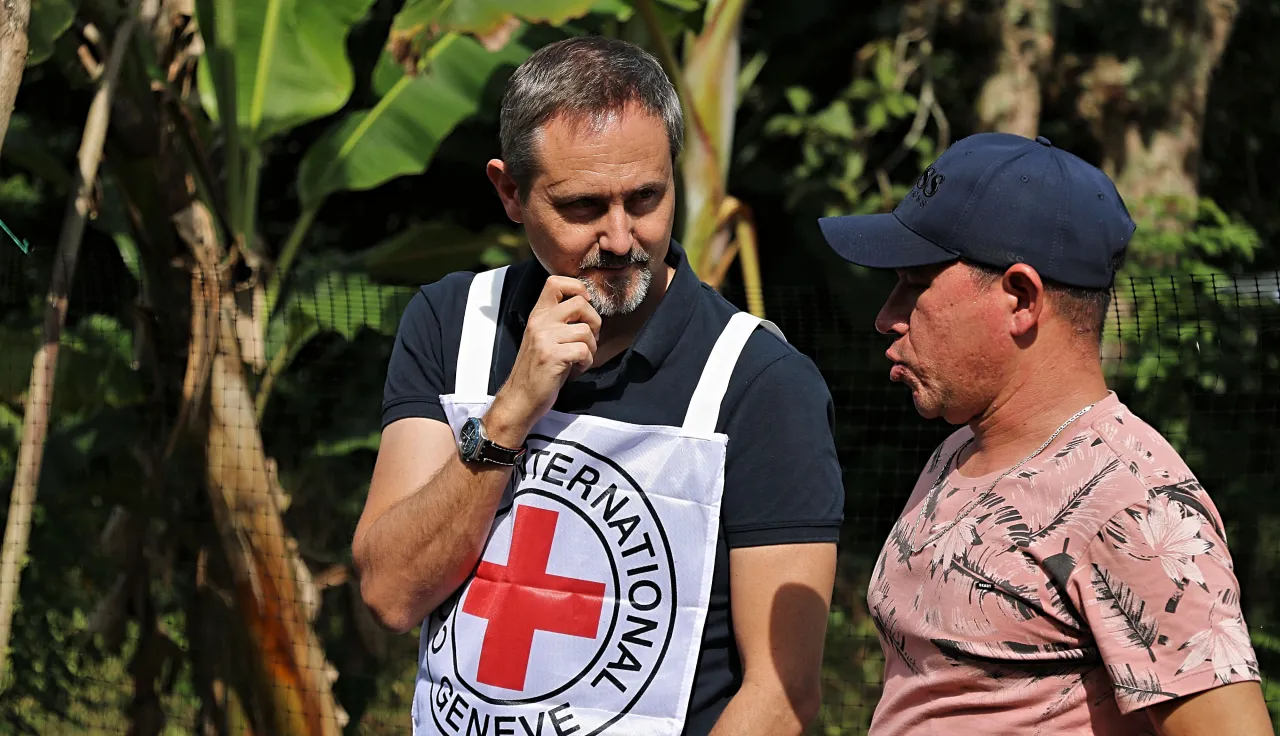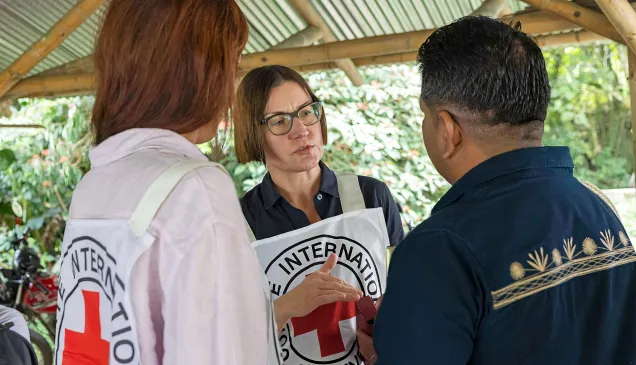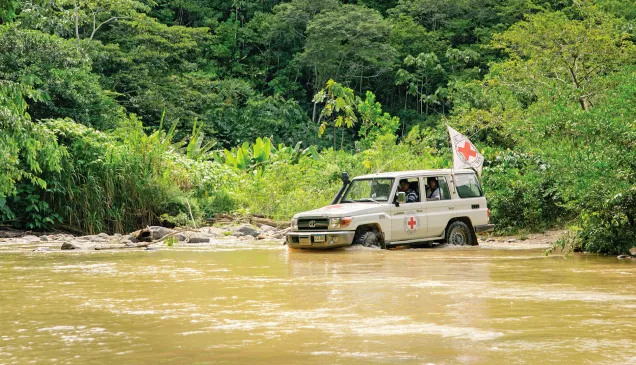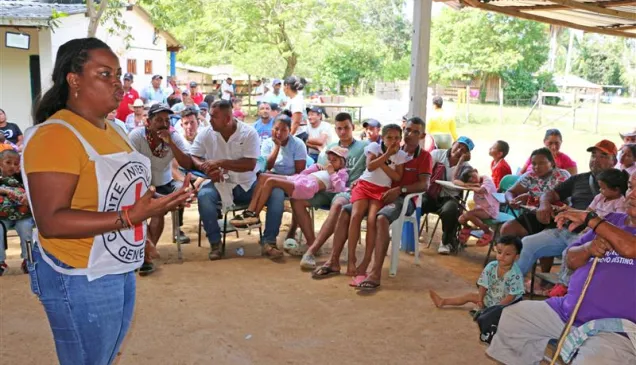'The importance of humanitarian action': Lorenzo Caraffi

No matter where I am in the world, I am often asked how it is possible to remain neutral when confronted with the suffering of people affected by armed conflict.
It isn't easy. Every humanitarian worker can tell you a story of the dilemmas they face – again, pretty often – when they have to take decisions that will affect people's lives. Finding the balance between the potential benefits and the potential risks is hard.
But what is certain is that neutrality is not only a moral stance. It's a humanitarian and pragmatic one, which enables us to speak with weapon bearers and have access to communities in need. Neutrality means we cannot take sides in a conflict, but we can take action to help its victims. It allows us to cross front lines to provide humanitarian assistance that saves lives.
For more than 50 years, our neutrality, impartiality, and independence have enabled us to fulfill our humanitarian role in the most conflict-affected areas of Colombia.
Last year, we provided water and food to more than 74,000 confined or displaced people. We obtained security guarantees so that our health teams could treat 382 sick or wounded people and 1,170 victims and survivors of sexual violence in areas where hostilities were ongoing. We recovered the bodies of 39 missing people so that they could be returned to their families to receive a proper funeral. We facilitated the release of 63 people being held by armed groups and visited detainees in 11 of the country's prisons.
Our principles enable us to champion states' compliance with international humanitarian law (IHL). Neutrality does not mean that the ICRC must remain silent; instead, it creates the space needed for dialogue to take place between us and weapon bearers suspected of breaking the rules.
We insist on the importance of safeguarding humanitarian action and respecting our ways of working to assist those affected.
This dialogue is bilateral and confidential. We present allegations and, if founded, seek to make the parties involved take responsibility for their actions. Events do not need to have been published on social media to have taken place. Confidentiality is not akin to complacency.
We prioritize face-to-face meetings with the weapon bearers who make decisions during the fighting. We also communicate publicly to support our multilateral work, raise awareness of IHL and other humanitarian norms, and explain our way of working.
Adopting a neutral stance does not alone resolve humanitarian issues, but it does provide a logical and coherent framework for everything the ICRC does and says. Coherence is fundamental for generating trust.
The 2022 reports from our field teams show that the situation in Colombia has continued to deteriorate in several parts of the country as a result of the seven ongoing non-international armed conflicts. Sadly, there was a rise in the number of victims of explosive weapons and in attacks on health workers by weapon bearers. We also continue to register hundreds of cases of people who have gone missing and to assist tens of thousands of confined or displaced people.
For this reason, we welcome the "Total Peace" policy and all the efforts being made to reduce the humanitarian consequences of the armed conflicts. We insist on the importance of safeguarding humanitarian action and respecting our ways of working to assist those affected.
Impartial humanitarian organizations need to follow standards that arise out of the constant use of the principles of neutrality, impartiality and independence, as well as rigorously managing the safety of all those concerned.
At the same time, we must not forget that humanitarian rules, such as IHL, are the foundations and not the roof: they are the minimum set of rules that humans have managed to agree on to protect those who are not or are no longer taking part in hostilities. They are not optional for parties to a conflict to enjoy.
All parties can do more to protect people than what is laid down by IHL – but they cannot do less. Moreover, they can strike agreements with other parties to bilaterally apply greater protection.
Given all this, whenever I'm asked how it is possible to be neutral in the midst of armed conflict, my answer is always the same: to be on the side of the victims of war.
Lorenzo Caraffi
Head of Delegation, Colombia
More about 'Humanitarian Challenges 2023'
- Civilian population trapped in fear and anxiety
- The constant threat of explosive hazards
- Unending uncertainty
- Health in the midst of conflict
- Overcrowding in temporary detention centres getting worse
- Releases: A reflection of our role as neutral intermediary
- Calls to action from ICRC to Colombia in 2023
- Colombia: Stories from the field



